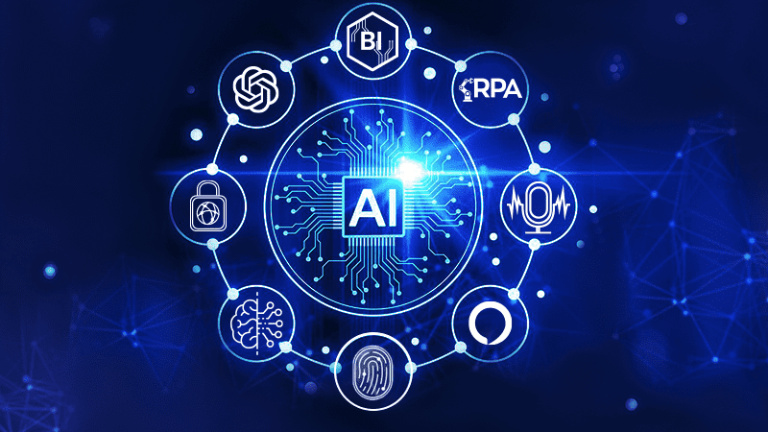AI-powered Chatbots and Virtual Assistants
Key Features

Natural Language Understanding (NLU):
AI chatbots and virtual assistants employ NLP to comprehend and interpret user queries in natural language, allowing for more human-like interactions.
Personalization:
Through machine learning algorithms, these systems can learn from user interactions and adapt responses to suit individual preferences and needs over time.
24/7 Availability:
AI-powered assistants are capable of providing assistance around the clock, offering immediate support and information retrieval whenever users require it.
Task Automation:
Chatbots and virtual assistants automate routine tasks, such as scheduling appointments, answering FAQs, and providing product recommendations, freeing up human agents for more complex inquiries.
Multichannel Support:
These systems can be deployed across various platforms and channels, including websites, messaging apps, social media, and voice-enabled devices, ensuring seamless access for users.
Integration with Backend Systems:
AI-powered assistants can integrate with backend databases, CRM systems, and third-party APIs to access relevant information and perform actions on behalf of users.
Continuous Learning:
Through ongoing training and feedback loops, AI chatbots and virtual assistants improve their accuracy and effectiveness over time, enhancing the user experience.
Applications

Customer Service:
AI-powered chatbots are widely used in customer service to handle inquiries, resolve issues, and provide support in real-time, improving response times and efficiency.
E-commerce:
Virtual shopping assistants help users find products, make purchase decisions, and provide personalized recommendations based on browsing history and preferences.
Healthcare:
AI-powered healthcare assistants assist patients with appointment scheduling, medication reminders, symptom checking, and accessing medical information and resources.
Education:
Virtual tutors and learning assistants use AI to provide personalized learning experiences, answer student questions, and offer educational support across various subjects and topics.
Finance:
Chatbots in the finance sector assist customers with account inquiries, transaction monitoring, budgeting advice, and investment recommendations, enhancing financial literacy and accessibility.
Human Resources:
Virtual HR assistants streamline recruitment processes, handle employee queries, provide onboarding support, and offer training and development resources.
Benefits
Improved Efficiency:
AI-powered assistants automate repetitive tasks, reducing the workload on human agents and improving operational efficiency.
Enhanced User Experience:
Chatbots and virtual assistants offer quick, convenient, and personalized assistance, enhancing the overall user experience and satisfaction.
Scalability:
These systems can handle large volumes of inquiries simultaneously, making them scalable and adaptable to fluctuating demand.
Cost Savings:
By automating customer service and support functions, organizations can reduce the operational costs associated with hiring and training human agents.
Data Insights:
AI-powered assistants generate valuable insights from user interactions, helping organizations understand customer preferences, behaviors, and pain points.
Advanced Capabilities

Emotional Intelligence:
Advancements in AI allow chatbots and virtual assistants to recognize and respond to human emotions, enhancing empathy and rapport in interactions.
Multimodal Interaction:
Integrating speech, text, and visual interfaces enables more versatile and intuitive interactions, catering to diverse user preferences and accessibility needs.
Contextual Understanding:
AI assistants can analyze contextual cues and previous interactions to provide more relevant and personalized responses, improving user satisfaction and engagement.
Predictive Analytics:
By leveraging predictive analytics and machine learning algorithms, virtual assistants can anticipate user needs and proactively offer assistance. Consequently, they streamline the user experience, ensuring efficiency and convenience.
Conversational AI:
Conversational AI technologies enable more natural and fluid dialogues. Consequently, they mimic human conversation patterns and understand complex queries and commands.
Industry-Specific Applications
Travel and Hospitality:
Virtual concierges assist travelers with itinerary planning, hotel bookings, restaurant recommendations, and local attractions. Consequently, they enhance the travel experience and ensure convenience, providing comprehensive support throughout the journey.
Retail and e-commerce:
Telecommunications:
Virtual assistants in telecommunications help customers with account management, billing inquiries, technical support, and service upgrades. Moreover, they play a crucial role in improving customer satisfaction and retention by providing efficient and accessible assistance.
Supply Chain and Logistics:
Chatbots streamline supply chain operations by providing real-time tracking updates, handling inventory inquiries, and coordinating logistics and delivery schedules. Additionally, they optimize efficiency and enhance communication throughout the entire supply chain process.
Government Services:
Virtual assistants in government agencies assist citizens with information retrieval, application submissions, permit requests, and accessing public services. Consequently, they improve accessibility and efficiency, thereby enhancing overall service delivery.
Ethical Considerations
Transparency:
AI assistants should transparently disclose their automated nature to users. Moreover, they should clarify the limitations of their capabilities to manage expectations effectively.
Privacy Preservation:
Safeguarding user data and respecting privacy rights is paramount. Therefore, this necessitates robust data protection measures and compliance with privacy regulations.
Fairness and Bias Mitigation:
Proactive efforts to identify and mitigate biases in AI algorithms are essential to ensuring fair and equitable treatment for all users, regardless of demographic characteristics.
User Consent and Control:
Users should have clear mechanisms to control the collection, use, and sharing of their personal data by AI assistants. Consequently, empowering them to make informed choices about privacy preferences becomes imperative.
Accountability and Transparency:
Establishing accountability frameworks and mechanisms for auditing AI systems promotes responsible use. Moreover, it ensures accountability for the decisions and actions of virtual assistants.
Conclusion
AI-powered chatbots and virtual assistants continue to evolve rapidly, offering advanced capabilities and expanding into new industries and use cases. While unlocking significant benefits in terms of efficiency, user experience, and innovation, they also raise important ethical considerations that require careful attention and proactive measures. Consequently, by navigating these challenges responsibly and embracing opportunities for collaboration and innovation, AI assistants have the potential to revolutionize how we interact with technology and enhance various aspects of our lives and work.


5 thoughts on “AI-powered Chatbots and Virtual Assistants”